Growing up as the daughter of a Spanish father and a Cuban mother, Maria (Lopez) Twena soon realized how different her life was compared to others who surrounded her. Living in a non-Hispanic neighborhood in New Orleans but born in Miami, Florida, Twena noticed the differences growing up in a Hispanic household compared to her life outside of her home, specifically when she first started primary school.
From the start, Twena had a huge culture shock at school. She was so familiar with her culture and traditions, which she learned from growing up with Hispanic parents, but when she was at school, it was a completely different environment for her.
We are darker
“We were darker, we spoke a different language, we ate different foods, and the culture shock really didn’t hit me until I got to first grade,” Twena said. “And I think that’s when I realized, ‘Oh my God, I’m so different than everyone else.’ Different things happened to me at school.”
Along with this, Twena shared how it was common for her to clash with her family due to what she learned while living in a Latino immigrant household but still trying to connect to what is taught in American society. At home, she was brought up on the idea of collectivism, where family and community prevail over self. However, outside her home, she noticed how society focused on being self-reliant.
Despite having an overall good childhood, Twena decided to study psychology to fully understand her childhood and some of the things she went through, such as the culture clash.
After studying psychology, she received her graduate degree in film and television, where she eventually branched out to work in general market advertising. While working for a general market global agency, she uncovered the bilingual-bicultural group within the agency. As she did research, she wanted to understand why she was not brand loyal after hearing about research that stated Hispanics tend to be.
MSN research
After doing the research study with MSN Latino, they found their thesis was correct.
“It was that brands needed to pay attention to children of immigrants because all of us play the role of Sherpa for our parents,” Twena said. “We translate the language, we interpret the U.S. ethos, which is different from ours. We inform brands and product purchases at a very early age and demystify things for our foreign-born parents, and we do it our whole lives.”
Twena said she then started a new discipline at the agency she worked for and focused on bilingual-bicultural topics.
Fifteen years ago, she volunteered to work with kids who were bilingual and bicultural and realized a similarity she had with them. “I realized, wow, they have the same issues at school that I had; they felt like outsiders. They didn’t feel comfortable raising their hand,” Twena said.
Two worlds
While observing this, Twena thought how great it would be to create something that children and adults from two different worlds could connect to. This eventually sparked the idea of MariVi: The Master Navigator, a book series created and written by Twena.
In the book series, the story follows a second-generation young girl by the name of Maria Victoria, also known as MariVi, who is navigating life in a Hispanic household while also having new American experiences at school starting in the first grade. “I called her the master navigator because that’s the role we all play as kids throughout our lives,” Twena said. “Masterfully navigating for ourselves as well as for our relatives.”
Currently, Twena has written two books for the series, “School Crossing” and “Weekend Ways.”
MariVi’s journey
The book series will follow MariVi’s journey from first to sixth grade. Readers will get to see some of the challenges MariVi will face as she grows up. For the first few years of her life, MariVi has grown accustomed to the culture, traditions and expectations that come from her Hispanic family. However, as she starts school, she will come across as trying to balance being a Latina and also an American.

MariVi
Being the creator and writer for the stories of MariVi, Twena did not base MariVi specifically on her life, but instead used what she learned from children who are bilingual and bicultural along with her shared experience to make the book series.
Nuestra.TV app
Along with providing this story of MariVi as books, Twena always hoped to eventually create a show depicting the series, and it became true as she started working with Adsmovil, a Hispanic first digital media company. She pitched the idea of animating her book series to the Adsmovil team to be shown on their Hispanic streaming app and service, Nuestra.TV.
“They were very supportive, and they’re like, this is perfect because we want content for the bilingual-bicultural,” Twena said. “It’s easy to find Spanish language content and easy to find English [language] content, obviously, but content that’s for the bilingual, by the bilingual-bicultural, is scarcer.”
On April 18, Nuestra.TV launched the animated series “MariVi: The Master Navigator,” where Twena and the streaming service welcomed people to get to know MariVi’s journey of navigating two worlds. Now that it is a book series and releasing as an animated series, Twena explained why it is important to share MariVi’s story with the Latino community, one of which is an accurate representation in the media for kids.
“I mean, we talk about representation and why it matters, but I really believe that at early ages, it matters probably the most because when you’re growing up, you feel insecure as a kid,” Twena said. “Many times, you don’t feel like you belong, and especially kids that come from first-generation immigrant households.”
Feeling validated
Twena believes that having this show can help kids feel validated and understood.
Along with kids, Twena shared the impact MariVi has on adults who have come across her. She explained how many adults did not have someone like MariVi growing up, and it shows how important it is to feel a connection with something in the media no matter what age you are.

Michael Roca
The Executive Director of Elevate at Omnicom Media Group, Michael Roca, shared his opinion on the release of the animated series. As a colleague of Twena, Roca found his own connection to the origin of the story, along with some similarities to Twena’s personal life.
“My parents are from Guatemala and I grew up in New York City and always having to translate for your parents, kind of going through those experiences that not many other kids had to go through,” Roca said.
Cross-over countries
Besides Latinos or Hispanics having a connection to MariVi, Twena said she has met kids from other countries and cultures who also found a connection to the character and story.
“So it’s amazing to me because I’ve had a lot of kids from different countries tell me that they relate to MariVi from India, from Egypt, and it warms my heart to know,” Twena said. “That’s the purpose of why she was created—to fill that hole.”
As for Roca, he also sees the impact the animated series will have on not only the Latino community but also diverse communities. He believes MariVi is universal when it comes to representing kids who go through similar experiences in life as her.
Overall, Twena has many aspirations for the outcome of the animated series. She hopes to impact all kids and children of immigrants through her storytelling, both in written and animated form. “I have a lot of hopes for MariVi. I think we’ve needed a character like this for a long time,” Twena said.

Kelly Seelig
Kelly Seelig
Kelly Seelig, who has crossed paths with Twena in the marketing world, shared her excitement for Twena’s work and passion for MariVi: The Master Navigator.
“I love watching people live their passion, and Maria has been so passionate about this for most of her career,” Seelig said. “And she’s fought for it, and she’s been about this for so long that I could not be happier to see this come to fruition in the way it has because I really do think it’s going to help so many people and tell so many stories that have been untold.”
Another goal of Twena is for the show to catch the attention of the general market, so it reaches out to more people and teaches what a kid who is bilingual and bicultural goes through in their daily life.
“I would love for it to be seen in the general market because I would love to demystify the mythology that’s out there, what the Latino is or is not,” Twena said. “And have the general market have a better understanding of who we are and what our childhoods are like because there are a lot of insights there about all bicultural kids that America needs to understand.”

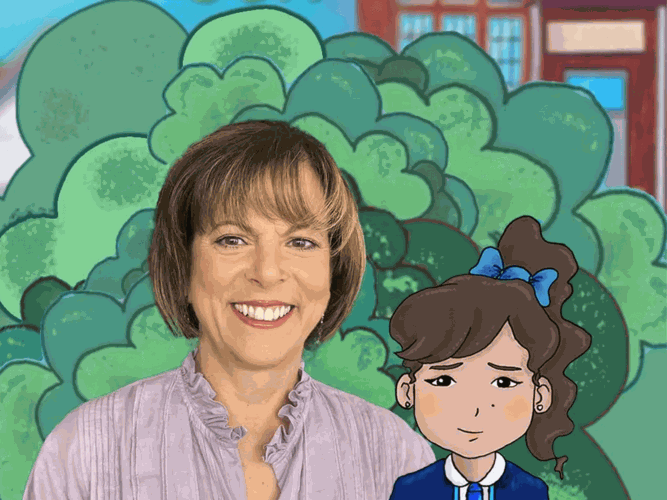
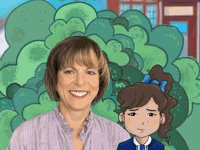

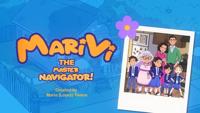

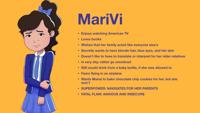

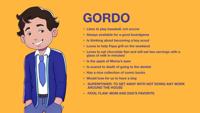



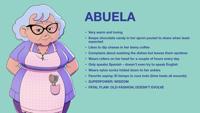

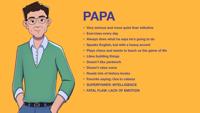

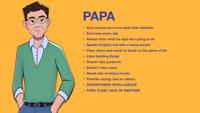

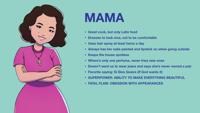

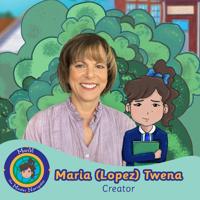
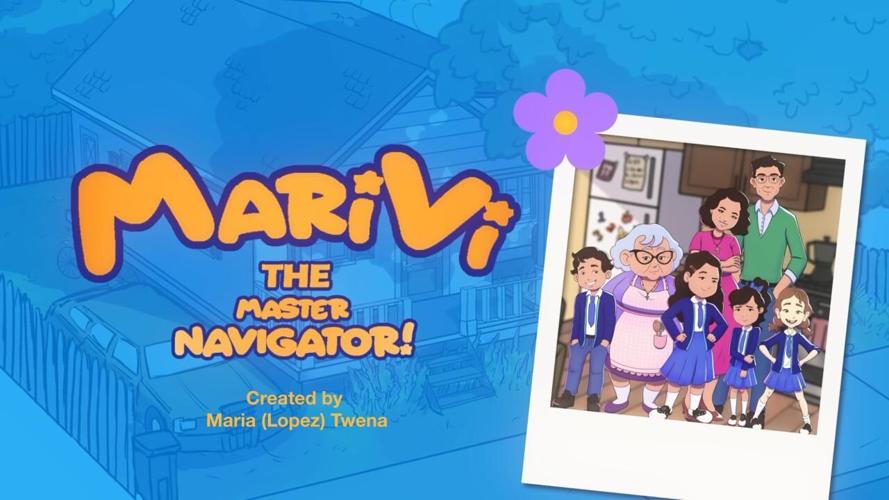
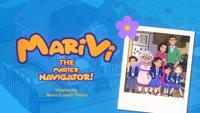





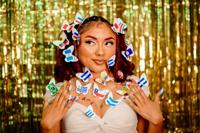

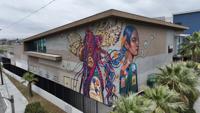




(0) comments
Welcome to the discussion.
Log In
Keep it Clean. Please avoid obscene, vulgar, lewd, racist or sexually-oriented language.
PLEASE TURN OFF YOUR CAPS LOCK.
Don't Threaten. Threats of harming another person will not be tolerated.
Be Truthful. Don't knowingly lie about anyone or anything.
Be Nice. No racism, sexism or any sort of -ism that is degrading to another person.
Be Proactive. Use the 'Report' link on each comment to let us know of abusive posts.
Share with Us. We'd love to hear eyewitness accounts, the history behind an article.